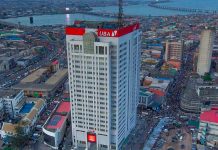Abdul Samad Rabiu, the Chairman of BUA Cement, has raised concerns over the potential surge in cement prices, suggesting that the cost per bag could rise to N10,000 due to the significant devaluation of the naira. He made these remarks during BUA Cement’s 8th Annual General Meeting held in Abuja on Thursday.
Rabiu explained that the current market price of cement, approximately N6,000 per bag, is already lower than it might be if the full impact of the naira’s devaluation were passed on to consumers. “If you see the exchange rate then, and the exchange rate today, you will see that cement is cheaper today than what it was last year,” Rabiu stated. “The reason being that if the dollar was up, the costs go up by the same margin, and the price of cement should be, maybe, N10,000 per bag.”
Rabiu also revealed that BUA Cement had initially aimed to reduce the price of cement from N4,500 to N3,500 per bag last year to support the federal government’s initiative to ease the financial burden on Nigerians. However, this effort was thwarted by cement dealers who sold the product at much higher prices, between N7,000 and N8,000 per bag, instead of passing on the savings to consumers.
The policy became unsustainable due to the naira’s devaluation and the removal of the petrol subsidy, both of which significantly increased operational costs. Rabiu shared that BUA Cement sold over a million tons of cement at the reduced price of N3,500 per bag before realizing the dealers’ practices. “A lot of the dealers took advantage of that policy. Rather than pass the low prices to the customers, they were selling at even double the price we sold to them,” Rabiu said.
With the exchange rate soaring from about N600 to approximately N1,800 to the US dollar, BUA Cement found it increasingly difficult to maintain the lower price. Rabiu emphasized that energy costs, a major part of the company’s expenses, are denominated in dollars and have been heavily impacted by the currency devaluation. The company spends between N15 billion and N16 billion monthly on energy, which accounts for over 60% of its operating costs.
In response to these challenges, BUA Cement is investing in a mini-LNG plant to power its machines and reduce production costs. Despite the economic pressures, Rabiu noted that BUA Cement continues to absorb some of the costs to prevent the price of cement from escalating to its potential market value of N10,000 per bag. “The price of cement, if you take the N4,000 that it was at the beginning of last year, and today’s N6,000, it’s only a 50% increase. So, we directly pushed to ensure that the price of cement is not getting higher than what it is today,” he said.
Despite these challenges, BUA Cement’s financial report for 2023 showed a 27.4% growth in net revenue, reaching N460 billion, up from N361 billion in 2022. The company also improved its capacity utilization to 61.2% in 2023, up from 59.8% in 2022, reflecting an increase in cement volumes dispatched and a corresponding rise in market share.
Rabiu’s comments underscore the complex economic environment facing Nigeria’s industrial sector, where currency fluctuations and energy costs are putting pressure on companies to balance profitability with consumer affordability.










